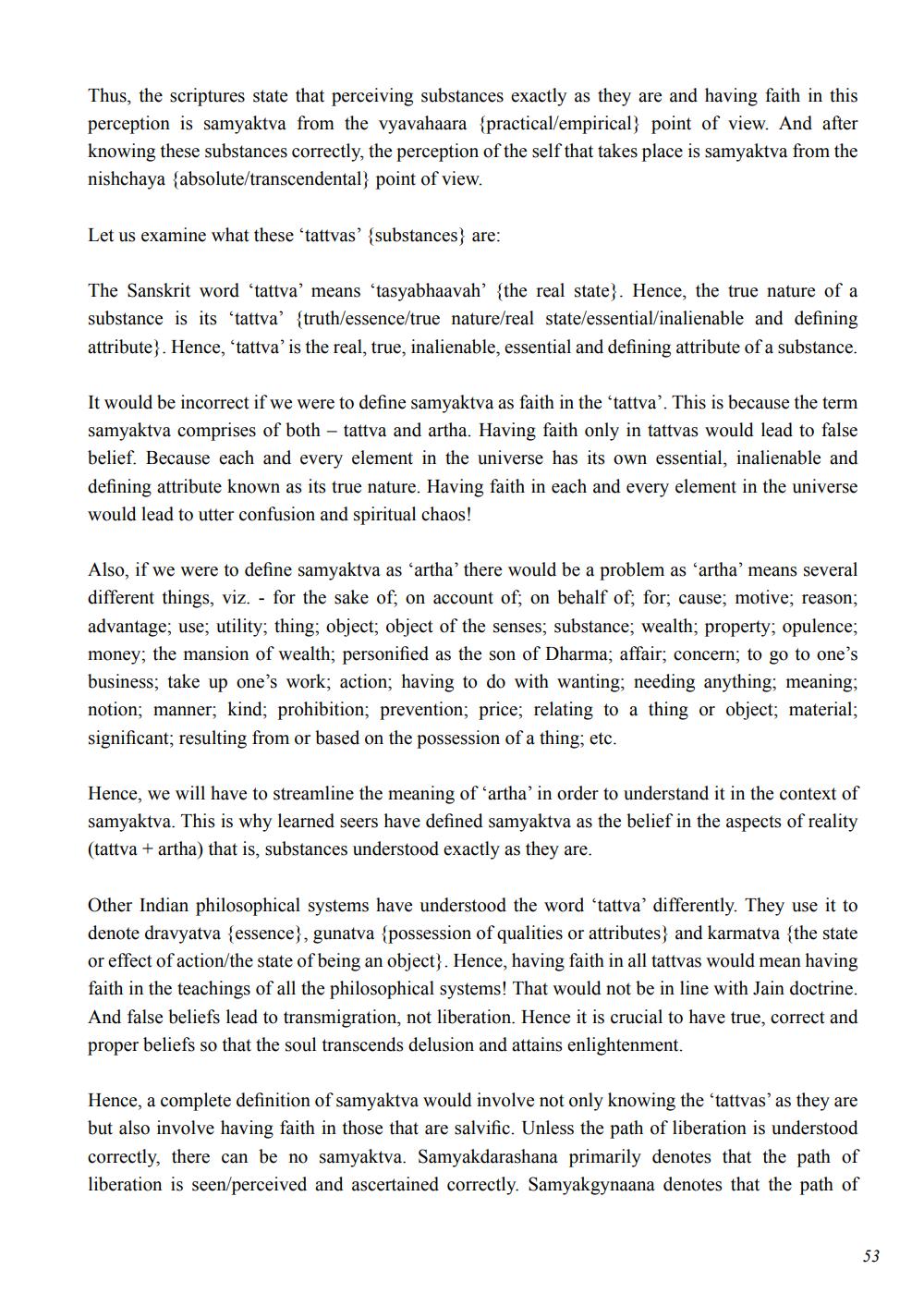________________
Thus, the scriptures state that perceiving substances exactly as they are and having faith in thi perception is samyaktva from the vyavahaara practical/empirical point of view. And after knowing these substances correctly, the perception of the self that takes place is samyaktva from the nishchaya absolute/transcendental point of view.
Let us examine what these 'tattvas' {substances are:
The Sanskrit word 'tattva' means 'tasyabhaavah' (the real state). Hence, the true nature of a substance is its tattva' {truth/essence/true nature/real state/essential/inalienable and defining attribute). Hence, 'tattva' is the real, true, inalienable, essential and defining attribute of a substance.
It would be incorrect if we were to define samyaktva as faith in the 'tattva'. This is because the term samyaktva comprises of both - tattva and artha. Having faith only in tattvas would lead to false belief. Because each and every element in the universe has its own essential, inalienable and defining attribute known as its true nature. Having faith in each and every element in the universe would lead to utter confusion and spiritual chaos!
Also, if we were to define samyaktva as 'artha' there would be a problem as 'artha' means several different things, viz. - for the sake of; on account of; on behalf of; for; cause; motive; reason; advantage; use; utility; thing; object; object of the senses; substance; wealth; property; opulence; money, the mansion of wealth; personified as the son of Dharma; affair; concern; to go to one's business; take up one's work; action; having to do with wanting; needing anything; meaning; notion; manner; kind; prohibition; prevention; price; relating to a thing or object; material; significant; resulting from or based on the possession of a thing, etc.
Hence, we will have to streamline the meaning of artha' in order to understand it in the context of samyaktva. This is why learned seers have defined samyaktva as the belief in the aspects of reality (tattva + artha) that is, substances understood exactly as they are.
Other Indian philosophical systems have understood the word 'tattva' differently. They use it to denote dravyatva essence), gunatva {possession of qualities or attributes and karmatva (the state or effect of action the state of being an object. Hence, having faith in all tattvas would mean having faith in the teachings of all the philosophical systems! That would not be in line with Jain doctrine. And false beliefs lead to transmigration, not liberation. Hence it is crucial to have true, correct and proper beliefs so that the soul transcends delusion and attains enlightenment.
Hence, a complete definition of samyaktva would involve not only knowing the 'tattvas' as they are but also involve having faith in those that are salvific. Unless the path of liberation is understood correctly, there can be no samyaktva. Samyakdarashana primarily denotes that the path of liberation is seen/perceived and ascertained correctly. Samyakgynaana denotes that the path of




